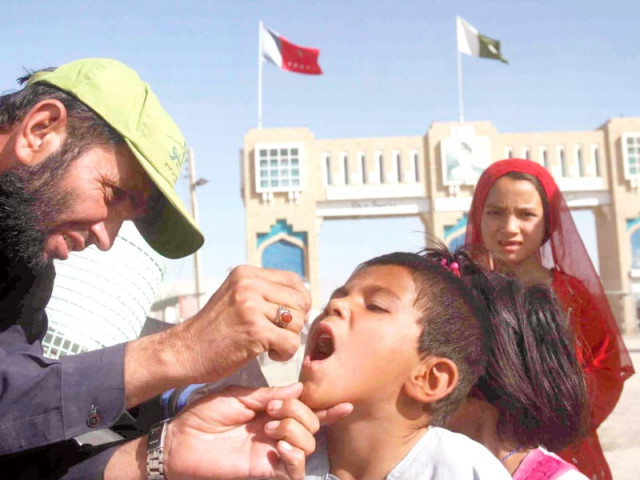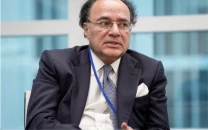Polio resurfaces in Torghar district
Virus detected in 10-month-old child, after district was declared polio-free.

Polio resurfaces in Torghar district
Torghar District in Khyber-Pakhtunkhwa (K-P), declared polio free in 2010, lost its privileged status after the National Institute of Health (NIH) on Wednesday confirmed a fresh case in the district, taking the country’s polio case count to 32 this year.
The case was recorded a day after Rawalpindi, which was also declared polio-free in 2010, had a new case reported, when the crippling P1 type virus was detected in Sanaullah, a three-year-old boy from Mandi Mor, who began suffering the onset of paralysis on August 17.
Talking to The Express Tribune, sources working for the anti-polio programme at the NIH Polio Virology Department said the case was confirmed just a few days after the district administration of Torghar praised the United Nations Children’s Fund’s (UNICEF) partner organisation, the National Research and Development Foundation (NRDF) for their effective strategies and planning to contain the virus in the region.
Such tall claims were quickly doused with cold water with the confirmation of the crippling P1 virus detected in a 10-month-old child by the NIH sources.
The sources said the family of Aneesa, the freshest victim, had been living in Karachi for five months during which time she was not immunized with oral polio vaccine. The family then moved to Dheera Koh village in Shadag Shagai tehsil of Torghar district and had been living there for the next five months when she contracted the virus. It was detected when her blood samples were sent to the virology laboratory at the NIH. However, when contacted, NRDF chief Tehseen Ullah Khan said he was unaware of the case.
The Executive District Officer of Health of Torghar, Dr Pervez Gul also denied the virus originated from his district, claiming its roots lay in Karachi as the family lived there for five months.
A recent meeting called by the Prime Minister’s Polio Monitoring and Coordination Cell and attended by parliamentarians, UNICEF, World Health Organisation and the Rotary Club of Islamabad Renaissance voiced concern that if Pakistan failed to eradicate polio, then Pakistanis would face difficulties in offering Umrah and Hajj in Saudi Arabia, as travel restrictions in connection with the virus would be imposed.
Published in The Express Tribune, September 13th, 2012.



















COMMENTS
Comments are moderated and generally will be posted if they are on-topic and not abusive.
For more information, please see our Comments FAQ